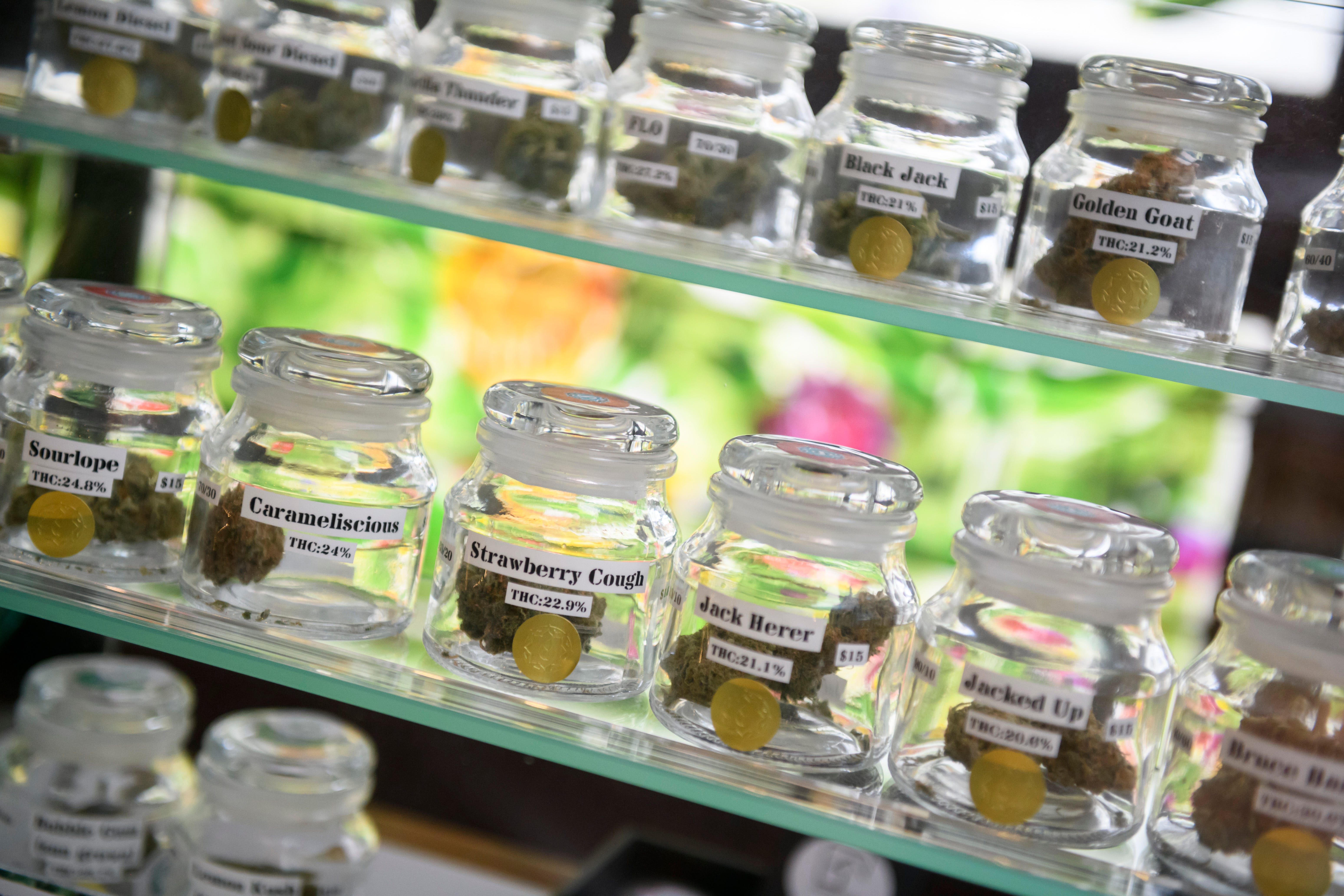Pot group: Michigan set to net $130M a year in new tax revenue
 Jonathan Oosting
Jonathan Oosting
Lansing — Marijuana legalization would eventually generate $130 million a year in new tax revenue for Michigan, according to an economic analysis paid for by a group pushing the statewide ballot proposal.
The report from national marijuana consulting firm VS Strategies of Colorado anticipates Michigan retail sales would begin in 2020 and projects recreational pot will become an $800 million industry by 2024 if voters approve the Nov. 6 ballot measure. It suggests legalization here would be less lucrative than in Colorado, which began allowing adult sales in 2014.
Over the first five years, Michigan would generate a combined $520 million in revenue from a new 10 percent marijuana excise tax and the existing 6 percent state sales tax, per the analysis. Revenue from the excise tax would be divided between roads, schools and local governments.
Revenues could peak in 2023 but taper off slightly by 2024 as the market matures and “competition slowly brings down prices,” said economist Andrew Livingston. By then, tax revenue on recreational marijuana sales would stabilize at around $129,400,695 each year.
Combined with medical marijuana dispensary sales, which will also be subject to the state’s six percent sales tax under a 2016 licensing law approved by the Republican-led Legislature, Michigan could generate $166 million a year in tax revenue from a $1.47 billion industry, according the projections.
“We’re also saving millions in law enforcement costs on the other end,” said Josh Hovey, a spokesman for the Coalition to Regulate Marijuana Like Alcohol ballot committee. “So this will be a significant gain for the state.”
But the head of opposition group Healthy and Productive Michigan argued the economic analysis did not account for "unforeseen" costs that could arise as a result of marijuana legalization, including workplace absenteeism, addiction treatment programs and efforts to keep the drug away from minors, who would not be allowed to purchase the drug at retail stores.
"Anybody who thinks economics in this state will improve because of this proposal is sadly mistaken," said Scott Greenlee, who pointed out the state has a nearly $57 billion operating budget. "There's a very small impact."
The new economic projections suggest Michigan revenues could fall short of those in Colorado, which became the first state in the country to begin legal recreational marijuana sales in 2014. Colorado has 3 million fewer residents than Michigan but has steeper marijuana tax rates than those proposed here.
Colorado collected $130 million in taxes and licensing fees in 2015, $193 million in 2016 and $247 million in 2017, when a higher sales tax rate took effect.
Colorado now imposes a 15 percent sales tax on recreational marijuana along with a 15 percent excise tax on the first sale or transfer of the drug from a farm to another facility or retail store. The state also applies its 2.9 percent sales tax to medical marijuana sales and requires various licensing fees.
The Michigan ballot initiative would impose a 10 percent excise tax on recreational marijuana retail sales, generating an estimated $80 million in annual revenue by 2024. The state’s six percent sales tax would also apply to retail sales.
Livingston said his “conservative” revenue estimates for Michigan are based on health survey data showing the rate of past-month marijuana consumption is lower in Michigan than in Colorado and Washington state, which also began legal sales in 2014.
“The tax rates are one side of the coin, the other side of the coin is just the total number of consumers,” said Livingston, whose model anticipates 680,000 to 700,000 annual consumers in the Michigan marketplace, including tourists.
Thirty-five percent of the revenue generated by the new excise tax would be directed toward Michigan road repairs, 35 percent to schools and 15 percent to cities or townships that choose to allow recreational marijuana businesses and 15 percent to counties.
That means the excise tax on legalizing weed would give the state around $28 million a year in extra money for road repairs, $28 million for Michigan schools and a combined $24 million for local governments that participate in the new industry, according to the analysis.
The new revenue is unlikely to make a major impact on Michigan’s $56.8 billion state budget, which includes a $4.5 billion budget for the Michigan Department of Transportation and a $14.7 billion School Aid budget for K-12 education.
“We’ve never said that this initiative is going to solve all of Michigan’s funding problems,” Hovey said. “We can only direct that funding where we believe it’s needed and the majority of residents I think would agree that our roads desperately need more revenue.”
Michigan's proposed tax rate would be among the lowest of any state that has legalized marijuana, Greenlee said.
"It isn't worth the price of our kids' future or the lives of people who will be killed by stoned drivers," added former state Senate Majority Leader Randy Richardville, R-Monroe, a spokesman for the opposition group.
The marijuana initiative will appear as Proposal 1 on the general election ballot.
joosting@detroitnews.com